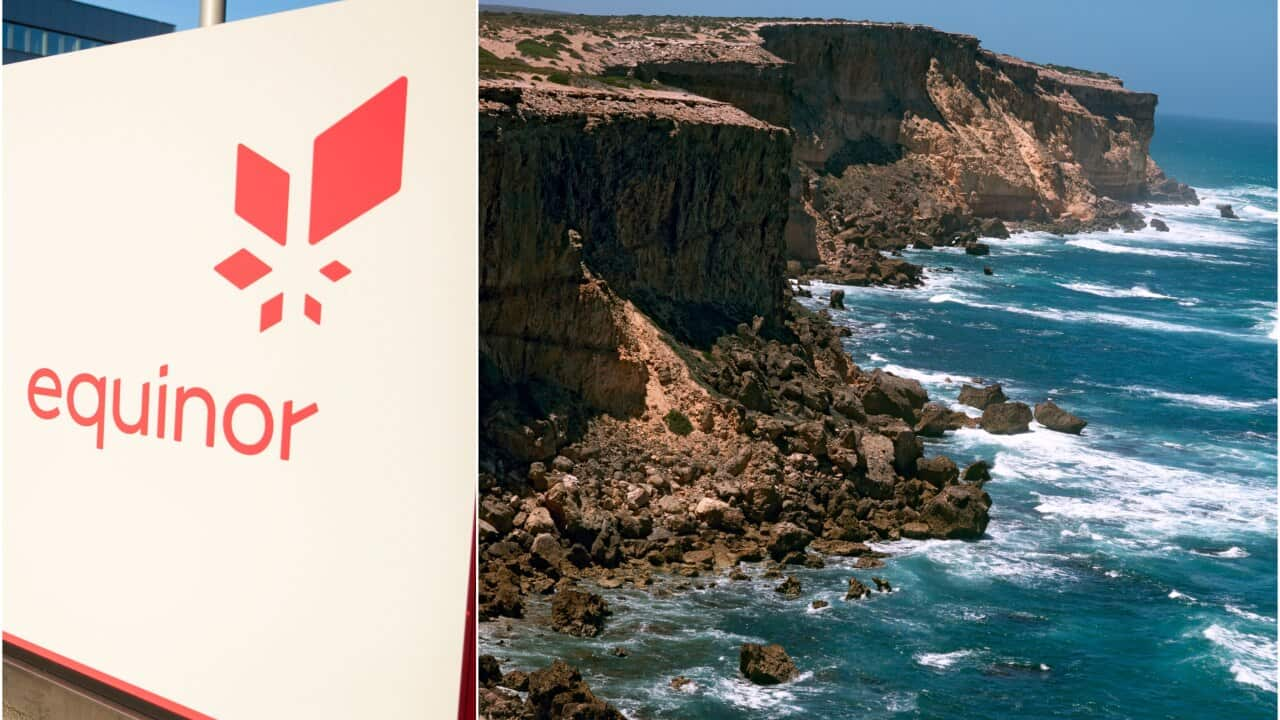Legal action by an environmental group to halt the drilling of oil in the Great Australian Bight has been launched.
On Wednesday, the Wilderness Society announced that it has begun legal proceedings in the Federal Court against the National Offshore Petroleum Safety and Environmental Management Authority (NOPSEMA).
This action comes after the regulator granted environmental approval to the Norwegian oil giant Equinor to drill 2.2 kilometers below the sea bed for oil.
The company plans to do this around 400 kilometres off the Nullarbor coastline in South Australia with its Stromlo-1 exploration well.
This go-ahead will allow the company to drill for 24 hours a day for around 60 days between November and April, either in 2020-21 or 2021-22.
'Unlawful' approval
The environmental group alleges that Equinor did not consult with appropriate parties during its environmental impact report and therefore claim the approval from NOPSEMA is “invalid”.
“We’ve initiated a judicial review in the Federal Court... because we believe the approval that NOPSEMA have given to Equinor is unlawful and invalid," Peter Owen, Director of the Wilderness Society in South Australia, told NITV News.
Mr Owen said that Equinor failed to consult with "appropriate environmental groups, Indigenous people and local government bodies".
"They failed to include key sectors of the Australian community in their formal consultation process… including the Wilderness Society.
"We are saying that [this lack of consultation] has resulted in a substandard proposal."
One of the biggest fears of the group and many others is the precedent the approval may set for the future.
"We are also arguing that this legal case is extremely important because NOPSEMA approved Equinor knowing that important sectors were not formally consulted ... this essentially now means that environmental and Indigenous groups are now not considered relevant," he said.
Mirning Elder and Traditional Owner, Bunna Lawrie, said that he and other Mirning Elders had been excluded from the consultation process.
“As far as we are concerned, Equinor did not come and consult with the Mirning Elders. They never came to us, they disrespected the Mirning Elders,” he said.
“We are the Traditional Owners of the area, a lot of us have cultural traditions and customs… we hold knowledge and wisdom to the area.”

Mirning Elder Bunna Lawrie said he does not want to see his home destroyed. Source: Aquapix/Shutterstock
“I don’t want my home or relationship with the whale lost forever, it is sacred and it is very important,” he said.
“We are the people who care for the whale and the sea, we have looked after them for more than 50,000 years and we don’t want pollution causing destruction.
“They are our family, we talk to the whale, we sing to the whale, we are the protectors and keepers.”
In a statement, Equinor said that it was not appropriate for them to comment on a matter that is currently before the court.
But the oil giant previously said it had held over 400 meetings with more than 200 organisations, including consultation with the Barngarla, Narungga, Nauo and Wirangu people.
Mr Lawrie said he was disappointed that the Mirning people were not one of the Indigenous peoples to be consulted as they hold "great cultural knowledge" to the Bight and its marine life.
NOPSEMA’s approval process took around eight months to complete and during this time the department reviewed over 30,000 submissions and asked Equinor to re-submit plans with more information on two separate occasions.
Potential Environmental Impacts
Equinor plans to use two offshore drilling units which will be supported by three ships and two helicopters.
The company has had 239 oil spills, but Equinor’s country manager Mr Stangeland told NITV News last year that none of these spills were "well incidents".
“If we believed there was any chance of an oil spill, we would not go ahead with this project,” he previously told NITV News.
“We have drilled more than 65 deepwater wells over the last three years, and with our partners, we have successfully drilled 75 exploration wells. All our science and experience tell us we can do this safely.”
But if a spill was to happen, the oil could reach as far as Port Macquarie’s beaches on the mid-north coast of New South Wales in a worst-case scenario, revealed which was obtained by the ABC in 2018.
The Bight is also home to a unique array of marine life with 85 per cent in the area found nowhere else in the world. The Bight also contains more than 36 species of whales and dolphins, boasting more marine diversity than the Great Barrier Reef.
One of these species is the tuna fish which was revealed to be negatively impacted in a leaked draft Oil Pollution Emergency Plan obtained by Greenpeace Australia.
"Commercial fisheries and aquaculture may be affected by temporary fishery closures, restrictions on sales … or effects to market value," said the report.
Equinor now has two of the four approvals required before activity can begin. It must still have a well operations plan and a facility safety case approved before it can begin drilling.











